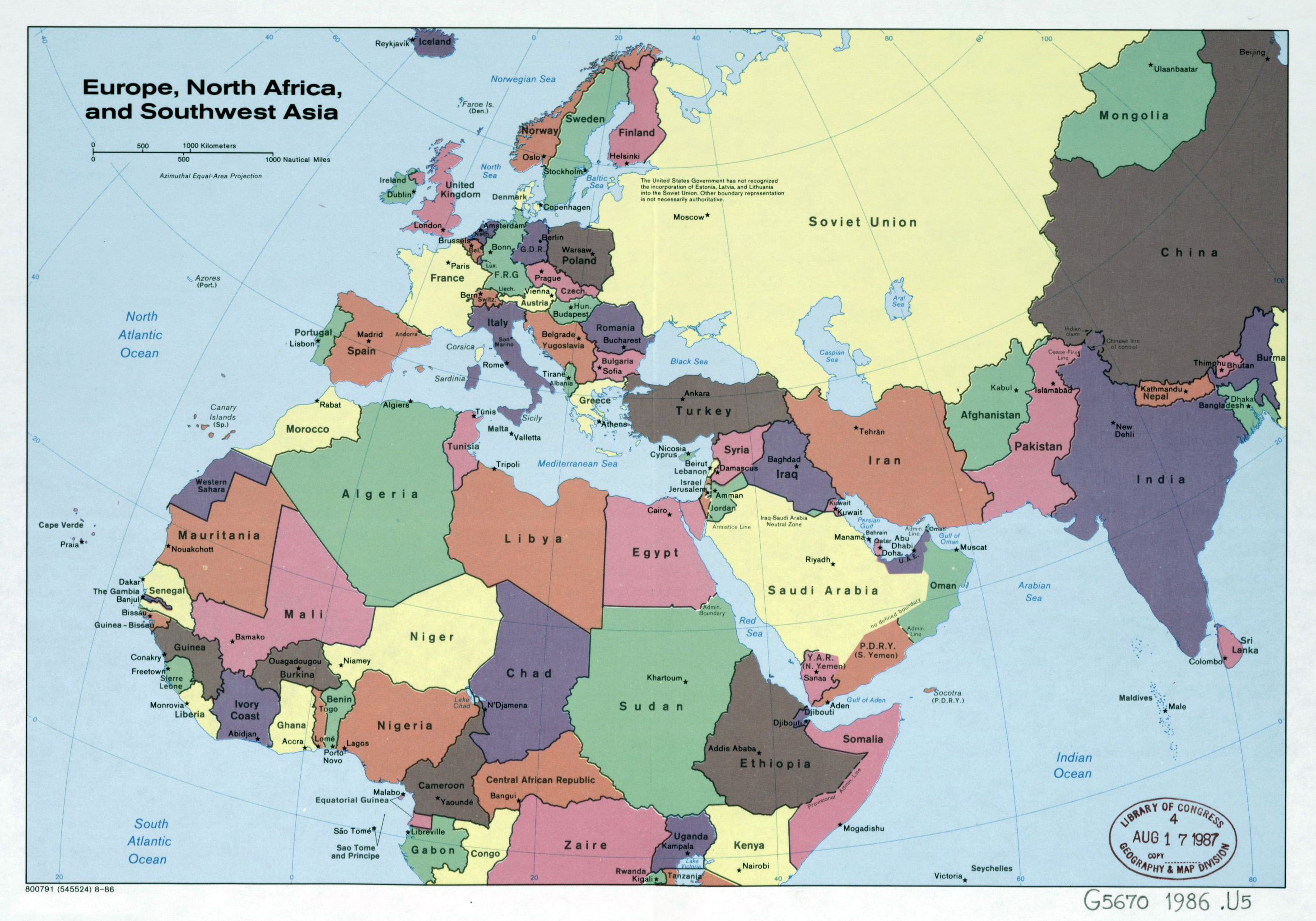Please provide me with some context or a question so I can assist you.

Image: www.alamy.es
For example, you could ask:
- “What is the capital of France?”
- “Can you write a poem about nature?”
- “Explain the concept of quantum mechanics.”
I’m ready to help, just let me know what you need!
Please tell me about the history of artificial intelligence and its potential impact on the future of humanity.

Image: www.mapas-del-mundo.net
Mapa De Europa Asia Y Africa
The idea of artificial intelligence (AI) has captivated humanity for centuries, appearing in myths, literature, and scientific discourse.
- Early Dreams: Philosophers like Aristotle and thinkers like Ramon Llull envisioned intelligent machines, while in the 17th century, René Descartes proposed the possibility of creating artificial humans.
- Birth of Modern AI: The foundation for modern AI was laid in the mid-20th century, with pioneers like Alan Turing exploring the potential of computers to simulate human intelligence. The Dartmouth workshop in 1956 is considered the official birth of AI as a field.
- Early Progress and AI Winter: Initial optimism led to breakthroughs in areas like game playing and theorem proving. However, limitations in computing power and data availability led to a period of decline known as the “AI winter” in the 1970s.
- The Rise of Machine Learning: The emergence of machine learning (ML) in the 1980s, focusing on statistical methods for analyzing data, reignited interest in AI.
- Deep Learning Revolution: The development of deep learning in the 2010s, with its ability to analyze complex data, marked a major turning point. This led to breakthroughs in image recognition, natural language processing, and other areas.
The Future of AI: A Double-Edged Sword
AI is rapidly transforming various aspects of our lives. The potential impact is immense, but it comes with both significant opportunities and daunting challenges.
Positive Impacts:
- Increased Productivity and Efficiency: AI can automate tasks, improve decision-making, and enhance efficiency in various industries.
- Medical Advancements: AI aids in disease diagnosis, drug discovery, and personalized medicine.
- Solving Global Challenges: AI can contribute to tackling climate change, resource management, and other global issues.
- New Forms of Art and Creativity: AI is already influencing art, music, and literature, opening up new forms of expression.
Challenges and Concerns:
- Job Displacement: Automation might lead to job losses in certain sectors.
- Bias and Discrimination: AI systems can perpetuate existing societal biases if trained on biased data.
- Privacy Concerns: The collection and use of personal data for AI applications raise ethical concerns.
- Weaponization of AI: AI technologies can be misused for malicious purposes, such as autonomous weapons.
- The Singularity: Some experts predict a future where AI surpasses human intelligence, leading to unpredictable consequences.
The Importance of Responsible Development:
To harness AI’s potential while mitigating its risks, we must prioritize responsible development and ethical considerations. This includes:
- Transparency and Explainability: Making AI systems understandable to humans.
- Algorithmic Fairness: Ensuring that AI systems are fair and unbiased.
- Data Privacy and Security: Protecting personal data and ensuring its ethical use.
- Public Education and Engagement: Spreading awareness about AI and fostering informed discussion.
The future of humanity will be deeply intertwined with AI. Whether this leads to a utopian or dystopian future depends on our collective choices and actions in navigating this transformative technology.






